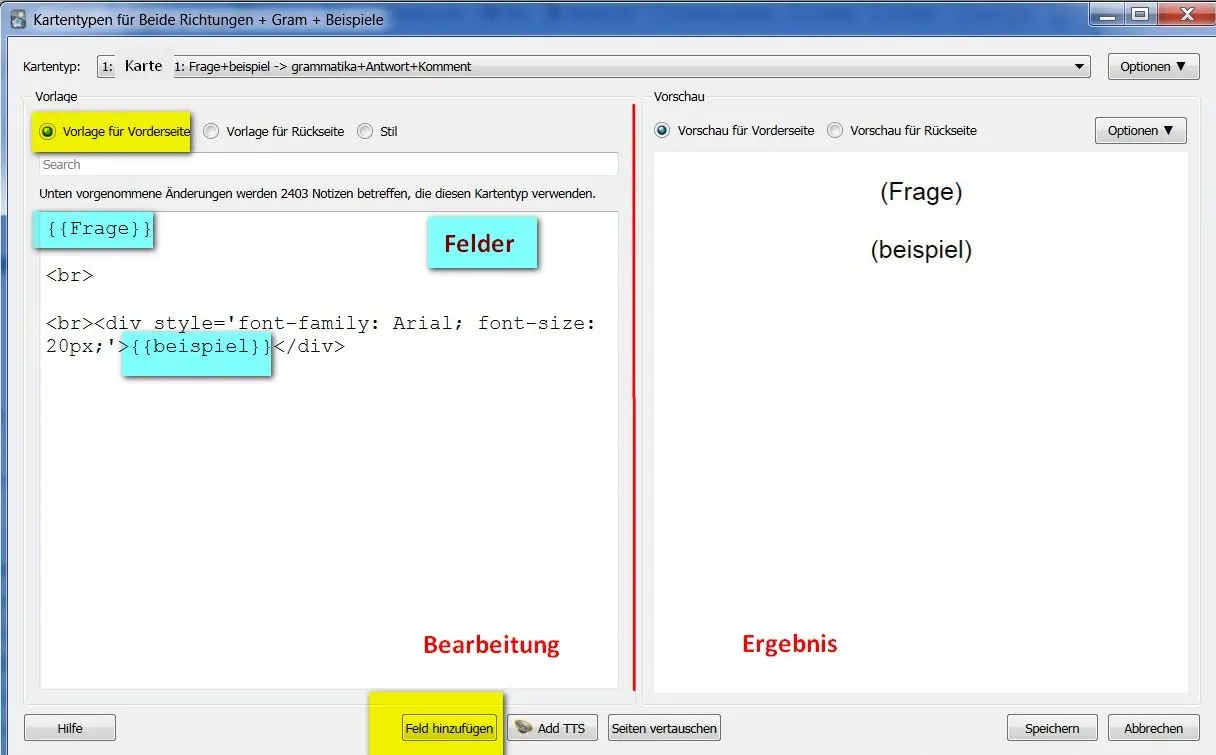There are a few more simple topics in Leben in Deutschland test (Einbürgerungstest), such as family and education.
german language
Basic German grammar tables and translation exercises in Anki. 1
Basic German – let’s go from the necessary to the more complex.
The very beginning, without which one cannot speak, – personal pronouns and present tense verb forms.
All images can be enlarge.
Anki cloze – type answer
Cloze is a special note’s type. You can skip a word or some words or whole sentence. Programm show you a sentence with skipped places and you think, which words have to match.
In my cards I could not only remember, but also type words. It is great exercise for translation from native to foreign language.
Anki for German. 4. Editing Anki templates
Editing Anki templates is the most important change that affects the way your notes and cards look. Here we can add fields, decide, how many cards have our note. We can also add a opportunity to type the answer.
Leben in Deutschland test. 7. Germany and Europe. Migrants
Leben in Deutschland test (Orientierungstest, Einburgerungstest) has several questions about the relationship between Germany and other countries (mostly Europe). There are also a few questions about migrants, but more from a historical perspective.
Note: This post does not include the changes that will occur with the UK’s exit from the EU.
Leben in Deutschland test. 6. Judicial branch
The topic “court (Judikative)” is small in the Leben in Deutschland test. All the information focuses on two questions: what courts are there and who are the Schöffen.
Anki for German language. 3. Creating new notes
We are exploring Anki further. First part was “studying”, second – “editing and sorting”. Now – “searching” and “creating”
All posts about Anki
Part 1. Studying
Part 2. Editing a deck and notes
Part 4. Editing templates
Part 5. Сloze with typing
Part 6. Add a pronunciation
30+ idioms in German with meaning astonished
In this part I collect German idioms (Redewendungen) expressing surprise and astonish.
Expressions that are noted as “common” in sources or that I have come across in books are printed in bold. usg. – umgangssprachlich (colloquial)
Anki for German language. 2. Edit deck and notes
In the first part, we used a ready-made deck, in which everything was ok for us. Now let’s see how we can edit cards.
Riddle in German. Do you know what is Vokuhila…
Ami, Hirni, Gymi, Godi, Reli, Öffi…
Or, here are a few simpler words: Hundi, Kindi, Kuli, Hausi … And now it is more clear what exactly they meant?

